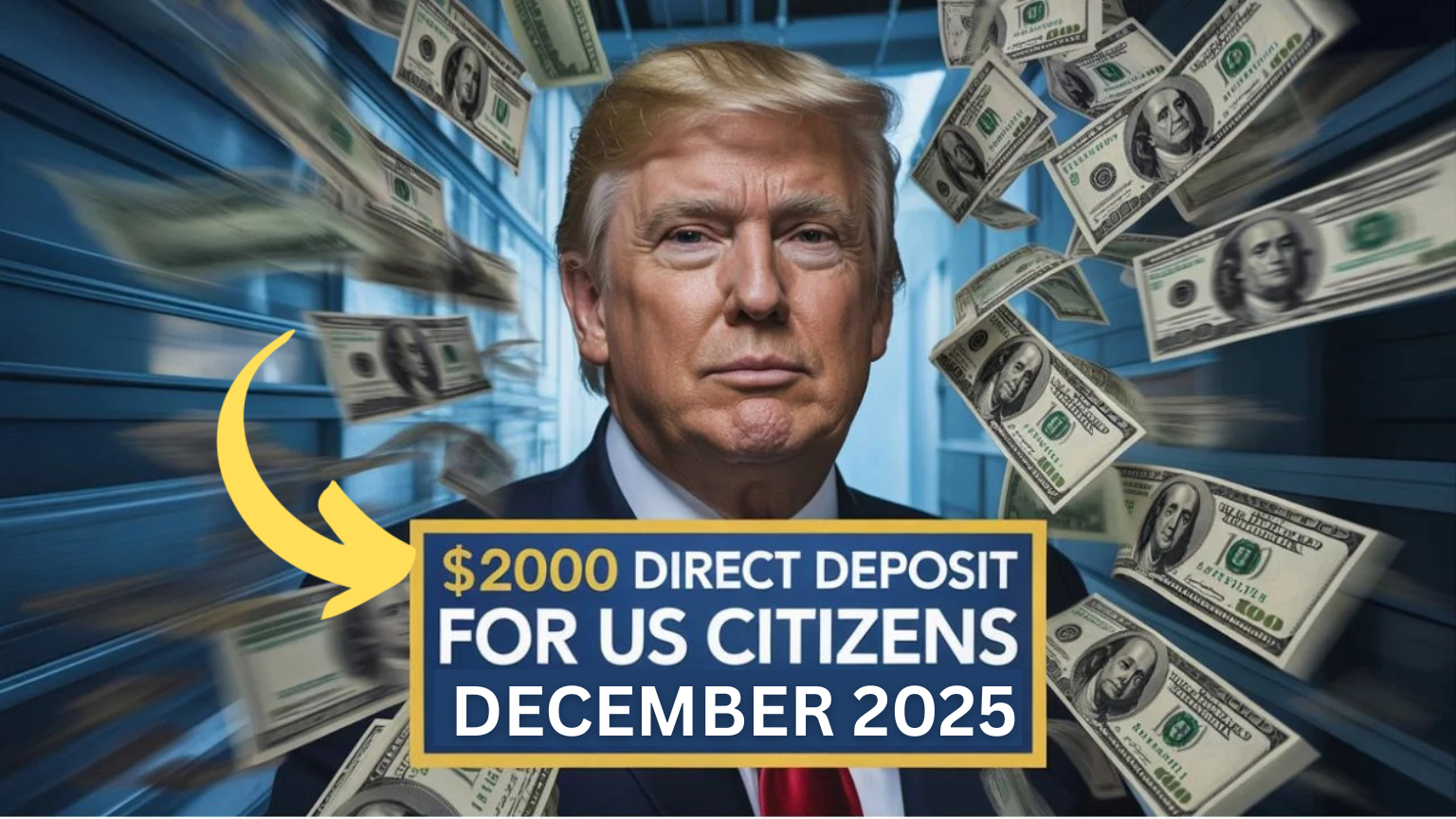IRS Confirms $2,000 Direct Deposit Payments: Recently, social media posts and websites have been circulating claiming that the IRS will deposit a one-time $2,000 payment into the bank accounts of eligible Americans in December 2025. These articles claim that the payment is an official relief measure—targeted at low- and middle-income families, senior citizens, veterans, and those on Social Security or disability—to help with inflation, higher living expenses, or winter expenses. Some versions even include instructions like “Check eligibility” or “Apply now.”
For many, the prospect of $2,000 in the bank just before the end of the year seems like a welcome relief. For others—veterans, retirees, and those living paycheck to paycheck—it offers some hope for holiday expenses, heating bills, groceries, or overdue bills.
What official sources actually say—and why this claim isn’t true
The fact is: No official source confirms the claim that the IRS will make $2,000 direct deposit payments in December 2025. Several recent fact-checks and reports from reputable news outlets have debunked this rumor.
- According to reporting by major outlets, the IRS has not approved any new federal stimulus or relief payments until the end of 2025.
- To issue such payments, Congress would have to pass new legislation. As of now, no such legislation has been enacted.
- The last time the IRS distributed large-scale “Economic Impact Payments” was during the COVID-19 pandemic (2020–2021), under specific federal relief laws—those programs have now expired.
- The idea of a “Tariff Revenue Dividend”—sometimes cited as the source of the $2,000 payments—is not law. It is a political proposal, not an approved or funded policy.
Simply put: The IRS has not made an official announcement, and there is no legal authorization for a one-time payment of $2,000 in December 2025.
Why this rumor is spreading—and what’s fueling it
There are several reasons to understand how this rumor gained momentum:
- The memory of pandemic-era checks: Many who received stimulus checks in 2020-2021 are accustomed to seeing such payments during times of economic hardship—making the idea emotionally appealing.
- Political discussion about a “tariff dividend”: Some political figures have proposed using tariff revenue to distribute dividends—sometimes described as $2,000 per person. But the proposals are not law.
- Going viral on social media: Posts promising quick money, often accompanied by urgent calls to “check eligibility now,” spread rapidly. The sense of urgency increases views and clicks—even if the actual claim is false.
- Scams and phishing: Fact-checkers warn that many such “stimulus alerts” are used by scammers to trick people into giving up sensitive information like bank account numbers or Social Security details.
What you should do now
- Don’t expect $2,000 to be deposited into your account until you see an official announcement from the IRS or Congress.
- If you want to stay informed, rely only on verified sources — such as official notices on IRS.gov or official releases from the U.S. Department of the Treasury.
- Be especially wary of any emails, social-media messages, or pop-ups that claim you must “apply,” “verify,” or “submit bank details” to receive a payment. These could be scams.
- If you’re having financial difficulties, look into existing, verified safety-net programs instead — not rumors circulating on social media.
In Short—A Reality Check
The idea of a $2,000 IRS direct deposit in December 2025 sounds emotionally appealing—but so far, it’s almost certainly false. There’s no official program, no legislative authorization, and no scheduled payments. Nothing in the IRS or Treasury’s public records supports this claim. Until there’s a verified announcement, consider this hype misinformation.
FAQs
Question: Has the IRS confirmed a $2,000 payment for December 2025?
Answer: No — Neither the IRS nor the Treasury has provided any confirmation. Media fact-checks indicate these claims are unverified rumors.
Question: Is there a proposal that could lead to such a payment?
Answer: Yes — Some political figures have put forward a proposal (often called a “tariff dividend”). But it remains just that. It hasn’t been approved by Congress, and there’s no funding or legal framework yet.
Question: Could some people still receive help from the IRS soon?
Answer: Recent payments from the IRS have been fairly small — refunds, tax credits, or rebates related to backlogged stimulus for a small group of taxpayers. There is no major, new payment schedule.
Question: Why are so many websites claiming payments?
Answer: Mostly due to misinformation, misinterpretation of the proposal, social media going viral, and—in some cases—attempts to scam people into giving out personal or banking information.
Question: What should people do to protect themselves?
Answer: Always verify claims through official channels (IRS.gov, U.S. Treasury). Ignore unsolicited messages asking for personal/banking details. Don’t rely on rumors for financial planning.
If you want — I can run a full “fact-check scoreboard” of recent major stimulus or relief rumors (2024–2025), showing which ones are real, which ones are just proposals, and which ones have already been proven false.

